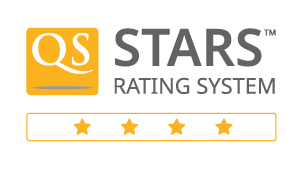On April 10, APU launched a food waste decomposition experiment using compost.
Food waste produced on campus from leftover food and unsold stock results in carbon dioxide being emitted during the transport and incineration of the waste. APU teamed up with komham* (CEO: Ms. Suno Nishiyama, graduated from the College of Asia Pacific Studies in 2011) to launch a roughly three-month-long decomposition experiment using compost with the aim of reducing carbon dioxide emissions on campus.
Komham’s compost can break down as much as 98% of added food waste in one day. Regular compost used until now could only break waste down about 50%. Although the residue is used as fertilizer, a problem is that there is nowhere for it to be used and the leftover fertilizer must be processed, for example by incineration. The compost being used in this experiment produces hardly any residue. A benefit of this process is that the amount needed by farms can be made into fertilizer and what is not needed can be used in the composter, without turning it into fertilizer.
To achieve a carbon neutral campus by 2030, the Ritsumeikan Trust including APU has set carbon dioxide emission reduction targets and targets to reduce environmental impacts, and it works towards realizing the SDGs.
https://www.ritsumei.ac.jp/sdgs/
See below for an interview with Ms. Suno Nishiyama.
https://r-rimix.com/news/rsif_interview02/
*The Ritsumeikan Trust established the Ritsumeikan Social Impact Fund (RSIF) in AY2020 to assist in action towards resolving social issues. It invests in komham as a company that endeavors to resolve social issues from the field of biotechnology.
komham website
https://komham.jp











